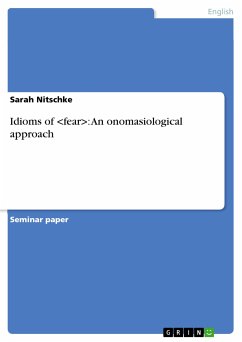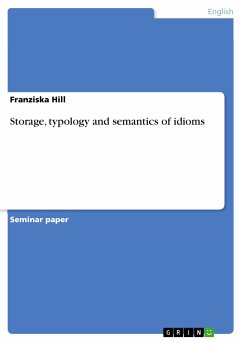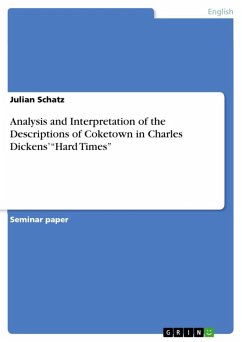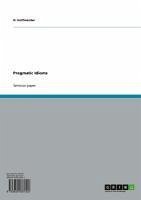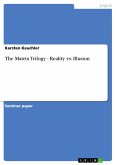Seminar paper from the year 2010 in the subject English Language and Literature Studies - Linguistics, grade: 2,0, University of Erfurt, language: English, abstract: By definition, "idioms are not expected to behave linguistically as phrases but as long words" (Moreno 2007:177) and are not awaited to allow internal transformation. Idioms appear as isolated lexical units. They are linguistic expressions and involve metaphors, metonymies, pairs of words, idioms with it, similes, sayings, phrasal verbs, grammatical idioms and they "are assumed to be a matter of language alone" (Kövecses 2002:199). According to the Oxford Dictionary of Idioms (ODI), the English word idiom derives from the Greek word idios meaning "private, peculiar to oneself". An idiom "is a form of ex-pression or a phrase peculiar to a language and approved by the usage of that language, and it often has a signification other than its grammatical or logical one" (ODI 1999). These expres-sions have become rigid within the language. They are used in a fixed way without reference to the literal meaning of their component words. The common phenomenon that the meaning of an expression is difficult or even impossi-ble to deduce from the meaning of the components it is composed of is called Idiomaticity (Fiedler 2007:22). The meaning of the components is difficult to derive because of the arbi-trariness in form and meaning. However, if idioms were arbitrary, they would not be moti-vated. The aim of this term paper is to observe the motivation of idioms of and thereby determine that idioms are not arbitrary. Therefore, chapter 2.1 presents an overview of idioms and motivation, especially metaphorically motivated expressions (chapter 2.1.2). Prediction and motivation will be distinguished in chapter 2.1.1. The emotion and the difference between this term and the related word will be described in chapter 2.1.3 to sim-plify the importance of distinguishing the different meanings of terms of . Eventually, the onomasiological approach will be discussed in chapter 2.2. Therefore, I will give examples of idioms of and in English as well as in German and observe their kinds of motivation. According to Kövecses (2002:202), the motivation of idioms arises from meta-phor, metonymy and conventional knowledge. This sentence shall present my hypothesis for this term paper.
Dieser Download kann aus rechtlichen Gründen nur mit Rechnungsadresse in A, B, BG, CY, CZ, D, DK, EW, E, FIN, F, GR, HR, H, IRL, I, LT, L, LR, M, NL, PL, P, R, S, SLO, SK ausgeliefert werden.

